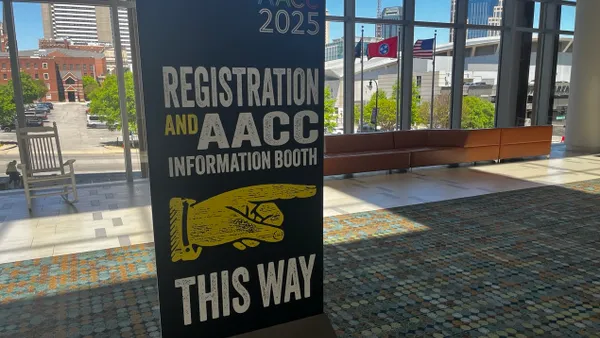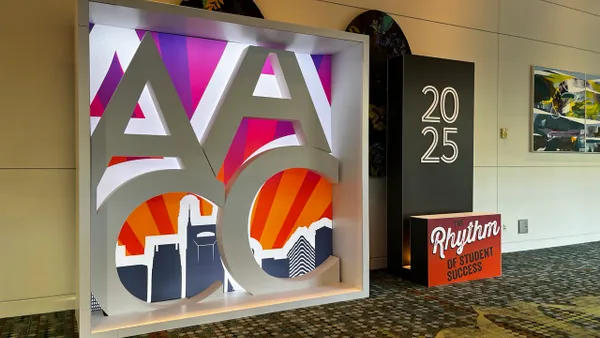Dive Brief:
- Basic needs funding for students at one college increased their persistence rates by up to 15.5%, according to a recent report from the Center for Higher Education Policy and Practice.
- Students at Southern New Hampshire University received federal pandemic relief grants to help them cover day-to-day necessities like food and housing. Grant recipients were more likely to stay enrolled months later than students who didn't receive basic needs support, CHEPP’s report said.
- "While there are a myriad of options and approaches for supporting learners’ basic needs, just-in-time grants appear to be one way to offer a flexible measure that can support a variety of learner needs," the report said.
Dive Insight:
During the pandemic, Congress approved three legislative packages with relief funding for higher ed totaling more than $76 billion. The U.S. Department of Education distributed that money to colleges through the Higher Education Emergency Relief Fund, or HEERF.
Nearly 2 of every 3 students got some form of emergency financial assistance from their colleges during the pandemic, according to recent research.
Southern New Hampshire received a total of $107 million in HEERF support. It distributed the funding in three waves as emergency basic needs grants to over 50,000 students, the October report from CHEPP said.
Researchers studied the recipients’ persistence rates after the university dispensed the second and third rounds of HEERF, when a total of $76.7 million went out to over 47,000 students.
Students who got grants during the second round were 15.5% more likely to still be enrolled eight months later than those who didn't get emergency funding. Following the third round of funding, the difference decreased, but recipients were still 8.6% more likely to be enrolled.
Previous CHEPP research found emergency grant recipients at Southern New Hampshire identified their greatest needs as housing, food and transportation.
"Learners continue to be viewed as traditional-aged college students (18-22 years old) with sufficient funds to cover food, housing, transportation, and other basic needs," the report said. "In reality, a growing number of today’s learners are housing and food insecure, do not have transportation, childcare, or other necessities."
Following CHEPP's findings, Southern New Hampshire began testing an emergency grant program this past spring and summer. It will use the findings from that pilot to help “inform future projects” related to basic needs funding at the university, the report said.














